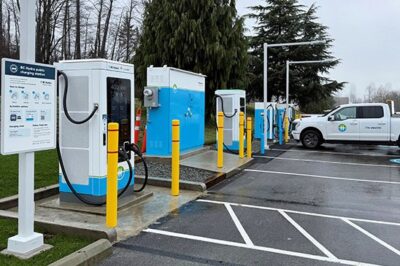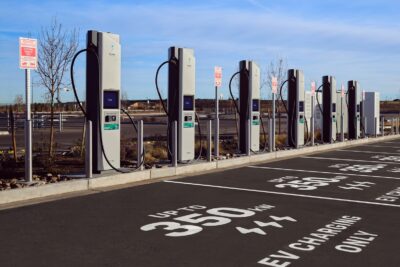UK: Suffolk gets 6,000 new public EV charge points
The 6,000 charge points are set to be installed in phases across the county, with the first chargers expected to go live in early 2025. The network will focus on residential streets, community hubs and other public locations, prioritising areas with limited off-street parking – a key barrier to EV uptake in many parts of the UK. Believ will install, operate and maintain the charge points under a fully funded model, removing the need for capital investment from the council. Liberty Charge – the asset owner and sister company to Believ – will retain ownership of the infrastructure.
Believ will install a mix of AC and DC chargers depending on location and local demand. The majority will be ‘ bollard-style units at the kerbside, suitable for long-stay or overnight charging,’ while the company will install a number of fast-chargers in car parks. All units will be powered by 100 per cent renewable electricity.
The rollout is planned in partnership with Suffolk County Council and funded in part by the UK Government’s Local Electric Vehicle Infrastructure (LEVI) fund. The CPO says it will invest more than 16 million pounds in the project.
According to Suffolk County Council, around 40 per cent of households in the region do not have access to private driveways or garages. The council sees equitable access to charging as essential to achieving both its climate targets and transport decarbonisation goals. The project aligns with Suffolk’s ambition to become carbon neutral by 2030 and supports the UK government’s broader EV transition plans.
Chris Hayton, Director of Corporate Affairs at Believ, commented: “This initiative with Suffolk County Council demonstrates our shared commitment to making EV charging accessible, convenient and inclusive – particularly for residents without off-street parking. The scale of the rollout will make a tangible impact on EV uptake across the county.”
With this deployment, Suffolk says it has become one of the most ambitious counties in the UK in terms of on-street charging provision. The project is expected to serve as a scalable model for other local authorities aiming to overcome infrastructure challenges tied to the UK’s net-zero transport transition.





0 Comments